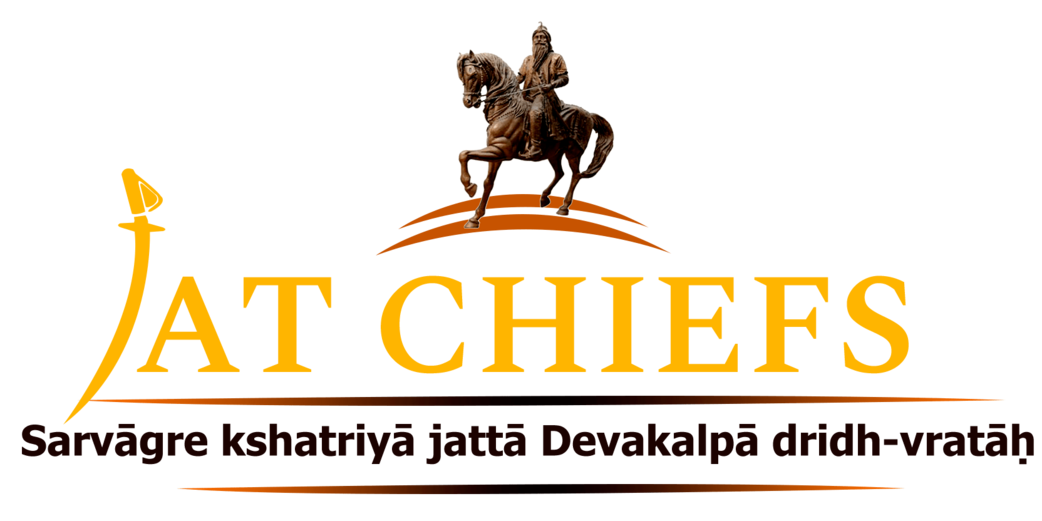History
The ancestor of Shamgarh family, Sardar Kirpal Singh, came from the neighbourhood of Batinda in 1770, and received the village of Shamgarh from Sahib Singh, Raja of Ladwa, who had married his sister. He joined Sahib Singh in most of his expeditions, and received a share of whatever plunder was taken. His daughter, Bhag Bhari, married Kunwar Partab Singh of Jind. who gave her the villages of Asand and Salwan in dowry. Kirpal Singh was on the occasion presented with five villages near Safidon; but these were afterwards resumed by Raja Sarup Singh. He died in 1830, leaving three sons, Dera Singh,Jai Singh and Fateh Singh.
Fateh Singh’s daughter married Shahzada Sheo Dev Singh, son of the late Maharaja Sher Singh of Lahore, who resided in Bareilly. Fateh Singh became the ancestor the Suga family. On the death in 1869 of Kirpal Singh, son of Kahan Singh, the whole of the rest of the Shamgarh estate passed to Sardar Ram Singh, the only surviving son of Deva Singh. His estates consisted of six entire villages and two-fifths of Mauza Taraori, yielding an income of Re. 8,450, subject to a commutation charge of Ra. 426 in lieu of service. He and his brother Kahan Singh had done good servioe in the Mutiny, and were allowed a remission of the oommutation for one year. Sardar Gurdit Singh, son of Sardar Ram Singh, continued to be the head of the Shamgarh family until his death in 1990. On his father’s death in 1902 he sueceeded to the hereditary title of Sardar and to the family seat in Provincial Darbars. Besides he was an Honorary Magistrate. He en joyed two-thirds of the tamily property, which he inherited from his father and had, in addition, an annual income of about Rs. 12,000 from other landed property. He was connected by marriage with the Sardar of Ladhran, the jagirdars of Mustafabad, and other families of note.
The village of Bhaini Khurd was held by Sardar Kaban Singh’s widow, a Iqdy of high repute in Sikh circles as an enthusiastic supporter of the traditions of the Khalsa, but on her death it went into Sardar Gurdit Singh’s hands. Sardar Gurdit Singh’s son, Gurbakhah Singh. is at present in full possession of his father’s estate. Sardar Sampuran Singh, son of Sham Singh, was a Captain in the Dholpur Army and a kursi nashin and an Honorary Panchayat Officer.
Genealogy
- Sardar Kirpal Singh, Jagirdar of Shamgarh -/1830, he was presented with five villages on the occasion of his daughter's marriage, though they were resumed by Raja Sarup Singh of Jind, married and had issue. He died 1830.
- Sardar Dewa Singh (qv)
- Jai Singh, died vp before 1830.
- Sardar Fateh Singh, Jagirdar of Suga, he received the villages of Suga, Kurak and Jatpura, after his father died, married and had issue. He died 1869.(see Suga)
- Bibiji Bhag Bhari, she received the villages of Asand and Salwan in dowry, married Kunwar Pratap Singh, died sp in June 1816, second son of Raja Bhag Singh, Raja of Jind. She died sp
- Sardar Dewa Singh, Jagirdar of Shamgarh 1830/1849, he succeeded to all the estates of his father, with the exception of the three villages granted to his younger brother, married and had issue, two sons. He died 1849.
- Sardar Kahan Singh (qv)
- Sardar Ram Singh (qv)
- Sardar Kahan Singh, Head of the Family 1849/1866, he and his brother did good service in the Mutiny, and were allowed a remission of the commutation for one year, married Bibiji (name unknown) Kaur, a lady of high repute in Sikh circles as an enthusiastic supporter of the traditions of the khalsa, she held the village of Bhaini Khurd after her husband's death, and had issue, one son. He died 1866.
- Sardar Kirpal Singh (qv)
- Sardar Kirpal Singh, Head of the Family 1866/1869, he died sp in 1869, when his estate was inherited by his uncle, Sardar Ram Singh.
- Sardar Ram Singh, Head of the Family 1869/1902, born 1834, his estates consisted of six entire villages and two-fifths of mauza Taraori, yielding an income of Rs3,450, subject to a commutation charge of Rs426 in lieu of service; he and his brother Kahan Singh did good service in the Mutiny, and were allowed a remission of the commutation for one year, member of the District Board, Viceregal Darbari, married and had issue. He died 1902.
- Bhag Singh, died 1869/1870.
- Gurbakhsh Singh, died 1869.
- Sardar Gurdit Singh (qv)
- Sardar Bahadur Sardar Gurdit Singh ( b.1857), Head of the Family 1902/1930, born 1857, a Naib-Tahsildar, an Honorary Magistrate and a Provincial Darbari, married and had issue. He died 1930.
- Sardar Gurbakhsh Singh (qv)
- Sardar Gursharan Singh alias Udai Singh, born 1882.
- Sardar Gurbakhsh Singh, Head of the Family 1930/- ; born 1877, he succeeded to his father's estates, the hereditary title of Sardar and his father's position as a Provincial Darbari , was married had issues with two sons -
- Sardar Harinder Singh
- Sardar Gurdit Singh
- Gurdit Singh (b.1857-d.1930), was married had issue's with two sons -
- Gurbaksh Singh (b.1877-d.1940)
- Udai Singh (b.1882-d. -d.1932)
- Sardar Gurbaksh Singh, Head of the family- born 1877, was married had issue with one son-
- Gurinder Singh (b.1920-d.1968)
- Sardar Gurinder Singh, Head of the family- born 1877, was married had issues with three sons and two daughters -
- Daljit Singh (b.1940)
- Bibiji Sukhijiwan Kaur
- Gurjit Singh
- Sukhjit Singh
- Bibiji Harjiwan Kaur
- Sardar Daljit Singh, Head of the family- born , 1940- had issues with three sons -
- Dilroop Kaur (b.1962)
- Devinderjit Singh (b.1967)
- Ravijit Singh (b.1973)



